
Assem Akram (born 1965) is an Afghan historian, and author from Kabul, Afghanistan.
Akram holds a PhD in history from the University of Paris.

Assem Akram (born 1965) is an Afghan historian, and author from Kabul, Afghanistan.
Akram holds a PhD in history from the University of Paris.

Babrak Karmal was an Afghan communist revolutionary and politician who was the leader of Afghanistan, serving in the post of general secretary of the People's Democratic Party of Afghanistan from 1979 to 1986.
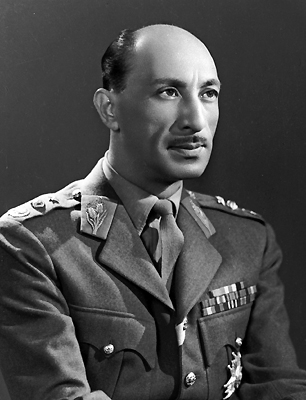
Mohammad Zahir Shah was the last King of Afghanistan, reigning from 8 November 1933 until he was deposed on 17 July 1973. Ruling for 40 years, Zahir Shah was the longest-serving ruler of Afghanistan since the foundation of the Durrani Empire in the 18th century.

Mohammad Daoud Khan was an Afghan military officer and politician who served as prime minister of Afghanistan from 1953 to 1963 and, as leader of the 1973 Afghan coup d'état which overthrew the monarchy, served as the first president of Afghanistan from 1973 until his assassination in the Saur Revolution.
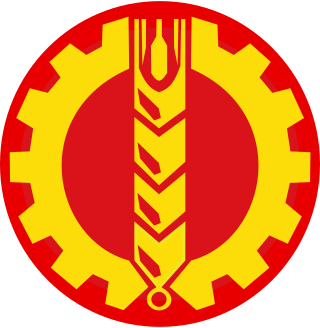
The People's Democratic Party of Afghanistan (PDPA) was a Marxist–Leninist political party in Afghanistan established on 1 January 1965. Four members of the party won seats in the 1965 Afghan parliamentary election, reduced to two seats in 1969, albeit both before parties were fully legal. For most of its existence, the party was split between the hardline Khalq and moderate Parcham factions, each of which claimed to represent the "true" PDPA.

Emir Dost Mohammad Khan Barakzai, nicknamed the Amir-i Kabir, was the founder of the Barakzai dynasty and one of the prominent rulers of Afghanistan during the First Anglo-Afghan War. With the decline of the Durrani dynasty, he became the Emir of Afghanistan in 1826. An ethnic Pashtun, he belonged to the Barakzai tribe. He was the 11th son of Payendah Khan, chief of the Barakzai Pashtuns, who was killed in 1799 by King Zaman Shah Durrani.

Mohammad Yunus Khalis was a mujahideen commander in Afghanistan during the Soviet–Afghan War. His party was called Hezb-i-Islami, the same as Gulbuddin Hekmatyar's party. The two are commonly differentiated as Hezb-e Islami Khalis and Hezb-e-Islami Gulbuddin.

Mohammadzai, also spelled Moḥammadzay, is a Pashtun sub-tribe or clan of the Barakzai which is part of the Durrani confederacy of tribes. They are primarily centered on Kandahar, Kabul and Ghazni in Afghanistan as well as in the city of Charsadda in neighbouring Pakistan. The Mohammadzai ruled Afghanistan from 1823 to 1978, for a total of 155 years. Their rule ended under Daoud Khan when the Communists took power via a Soviet-backed coup.

Colonel General Abdul Kadir Dagarwal was an Afghan politician, diplomat, and a military officer in the Afghan Air Force who participated in the coup d'état that created the Republic of Afghanistan under the President Dawood Khan, and later directed the Afghan Air Force and Army Air Corps squadrons that attacked the Radio-TV station during the Saur Revolution.
Sher Mohammed Akhundzada is an Alizai tribal leader who was the Governor of Helmand in Afghanistan from 2001 to 2005. As governor, he implemented various agricultural projects in Helmand, including canal excavation from the Kajaki dam for irrigation and electricity generation projects. He was deeply involved in opium production and smuggling, leading to his removal from office by the Afghan government in 2005 after lobbying by the British, who were leading counter-narcotic efforts in Afghanistan at the time. He was succeeded as governor of Helmand by Mohammad Daoud.
Mohammad Daoud was the governor of Helmand in Afghanistan until he was removed from his post for his ties to the opium trade. Daoud was appointed in December 2005, and replaced in December 2006 after the insistence of the British ISAF troops. The U.S. used the warlords to help them hunt Al Qaeda and the Taliban and it is rumored this extended to ignoring their involvement in the production and sale of opium.
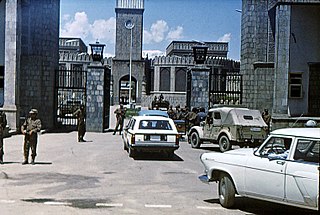
The Saur Revolution or Sowr Revolution, also known as the April Revolution or the April Coup, was staged on 27–28 April 1978 by the People's Democratic Party of Afghanistan (PDPA) and overthrew Afghan president Mohammed Daoud Khan, who had himself taken power in the 1973 Afghan coup d'état and established an autocratic one-party system in the country. Daoud and most of his family were executed at the Arg in the capital city of Kabul by Khalqi military officers, after which his supporters were also purged and killed. The successful PDPA uprising resulted in the creation of a socialist Afghan government that was closely aligned with the Soviet Union, with Nur Muhammad Taraki serving as the PDPA's General Secretary of the Revolutionary Council. Saur or Sowr is the Dari-language name for the second month of the Solar Hijri calendar, during which the events took place.
Zohra Yusuf Daoud ; is an American TV celebrity, radio show host, Miss Afghanistan (1972) and a journalist of Afghan descent.
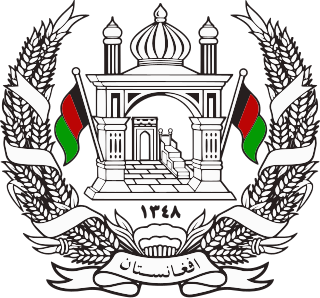
The Barakzai dynasty also known as the Muhammadzai dynasty ruled modern day Afghanistan from 1823 to 1978 when the monarchy ended de jure under Musahiban Mohammad Zahir Shah and de facto under his cousin Sardar Mohammad Daoud Khan. The Barakzai dynasty was established by Dost Mohammad Khan after the Durrani dynasty of Ahmad Shah Durrani was removed from power. As the Pahlavi era in Iran, the Muhammadzai era was known for its progressivist modernity in which Afghanistan was referred to as the "Switzerland of Asia".
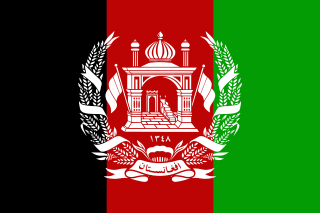
The Kingdom of Afghanistan was a monarchy in Central Asia that was established in 1926 as a successor state to the Emirate of Afghanistan. It was proclaimed by its first king, Amanullah Khan, seven years after he acceded to the throne. The monarchy ended in the 1973 Afghan coup d'état.
Mohammad Daoud Sultanzoy, is an Afghan politician, pilot and television presenter who served as Mayor of Kabul from 2020 to 2021; the Fall of Kabul (2021) occurred during his incumbency. He was previously elected to represent Ghazni Province in Wolesi Jirga, the lower house of its National Legislature, in 2005. He is a Pashtun from the Ghilzai tribe. He is the only politician ever to serve under three heads of state leaders, Ghani and Saleh for Islamic Republic, and Akhundzada for Islamic Emirate (Taliban).

Mohammad Nadir Shah was King of Afghanistan from 15 October 1929 until his assassination in November 1933. Previously, he served as Minister of War, Afghan Ambassador to France, and as a general in the Royal Afghan Army. He and his son Mohammad Zahir Shah, who succeeded him, are part of the Musahiban.

The Republic of Afghanistan was the first republic in Afghanistan. It is often called the Daoud Republic or the Jamhuriyye-Sardaran, as it was established in July 1973 after General Sardar Mohammad Daoud Khan of the Barakzai dynasty alongside senior Barakzai Princes deposed his cousin, King Mohammad Zahir Shah, in a coup d'état. The occcasion for the coup was the 1964 Constitution of Afghanistan, that took power from most members of the royal family, in favour of the centralization under Zahir Shah and his offspring under the tenet of democracy. Daoud Khan was known for his autocracy and attempts to modernize the country with help from both the Soviet Union and the United States, among others.

Bārakzai is the name of a Pashtun tribe from present-day, Kandahar, Afghanistan. '"Barakzai" is a common name among the Pashtuns and it means "son of Barak" in Pashto. According to the Encyclopædia Iranica, "In the detailed Pashtun genealogies there are no fewer than seven instances of the ethnic name Bārakzī, at very different levels of tribal segmentation. Six of them designate simple lineages within six different tribes located in the Solaymān mountains or adjacent lands... The seventh instance, on the other hand, designates one of the most important Pashtun tribes in numbers and historic role, part of the Zīrak branch of the Dorrānay confederation.

The 1973 Afghan coup d'état, also called by Afghans as the Coup of 26 Saratan and self-proclaimed as the Revolution of 26 Saratan 1352, was led by Army General and prince Mohammad Daoud Khan against his cousin, King Mohammad Zahir Shah, on 17 July 1973, which resulted in the establishment of the Republic of Afghanistan under a one-party system led by Daoud Khan.